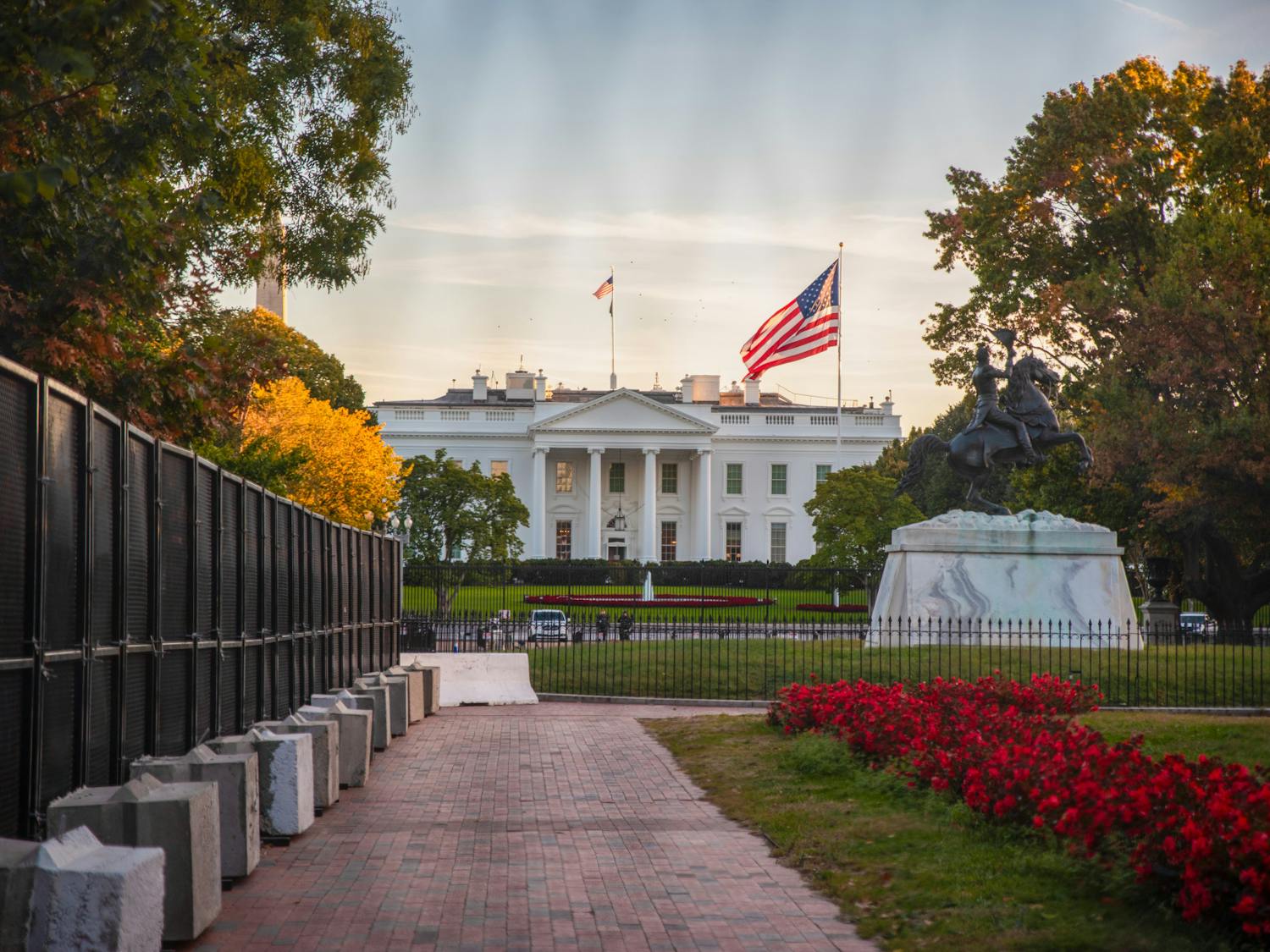From Andrew Exum's, "Invisible Man," Fall '98 From Andrew Exum's, "Invisible Man," Fall '98In the past few weeks, as street evangelists occupied College Green, our President admitted sin and asked for forgiveness from God and the American people and the Jewish community celebrated its New Year, Penn has engaged in some atypical dialogues on organized religion. Both Reverend Beverly Dale of the Christian Association and Rabbi Howard Alpert of Hillel say that one of the main reasons college students are so disinterested in organized religion is that most faiths de-emphasize the individual, which tends to be an affront to college students who inherently reject any dogma that forces them to, in Alpert's words, "subjugate their own desires." Although the University enjoys a particularly strong community of Jewish students comfortable with their beliefs and practicing their faith, Alpert says "conflict between organized religion and the college student is inevitable," in part because "organized religion is countercultural in several important ways." Among those is the fact that religion relies on traditional teachings and dogma to support the faith, which is foreign to a generation taught to seek its own wisdom and discount traditional teachings. In addition, Alpert says that the often-rigid structure of religion turns off students who are challenged every day in the classroom to expand their intellectual boundaries. Dale, aside from also emphasizing that many students feel their individuality is endangered by religion, also postulates that many college students simply aren't ready for an institution to "challenge the meaning and purpose to our lives." In short, for the "me" generation, religion that stresses the connection we all have toward one another is anathema. And just across the Schuylkill on Spruce Street, James Boice, pastor of 10th Presbyterian Church and a respected theologian, brought up similar points as Alpert and Dale. But he added that many of the problems facing organized religion -- and the Christian Church in particular -- stem from the fact that many students fail to see that organization is simply a means to a greater end. "What the Bible speaks of is the Church itself," Boice says, "which is chiefly a fellowship of people who have come to know Christ and are drawn together around that common experience and loyalty. "The Bible calls them Christ's body, Christ's bride, a temple composed of living stones, a family, a kingdom. That is quite dynamic, something very different from what most people think of when they hear the word organized." Indeed, a quick canvas of Penn undergraduates reveals that many view the Church as a collection of devalued rites and rituals attended by hypocrites and the self-righteous. Thinking like this led Boice and 10th Presbyterian to begin an unorthodox billboard campaign a few years back with slogans like "Christ Didn't Like Church Either (but he didn't use it as an excuse not to go)." More and more, churches and synagogues are beginning to realize that many see organization and ritual as unnecessary to lead a spiritual life and follow faith. Boice responds by underlining that "the essence of the church is its spiritual life, which is realized in community. We belong to each other and need each other, and in our better moments that is what we all really long for." For more students to embrace organized religion, however, a number of attitudes similar to the ones Dale, Alpert and Boice describe must change. In the Christian Church, for example, what is desperately needed for Penn's student body is an apologist, an intellectual defender of the faith, someone to, as C. S. Lewis writes, "undermine their intellectual prejudices." Instead, the image of the Christian Church that most students hold is one embodied by that of Brother Stephen, preaching an irrational gospel on College Green peppered with fire, brimstone and a message bordering heresy. To counteract the baseless and often contradictory messages brought forth by men like Khalid Muhammad in the Nation of Islam and street evangelists in the Christian Church, it is crucial that students to seek out discussion with their peers on religious matters. By engaging in a continuing dialogue on faith, we can help to service each others' spiritual needs as well as answer many of the questions we have about one another's faiths. Students on this campus are all too eager to discount the teachings of condescending street preachers, but when it comes to engaging in serious dialogue with one another, we get a bit more nervous. Another way in which we can help change views on organized religion is to increase its presence on campus, not by lining Locust Walk with contact evangelists, but rather by sponsoring speakers, forums and dinners to open a spiritual dialogue.
The Daily Pennsylvanian is an independent, student-run newspaper. Please consider making a donation to support the coverage that shapes the University. Your generosity ensures a future of strong journalism at Penn.
Donate







